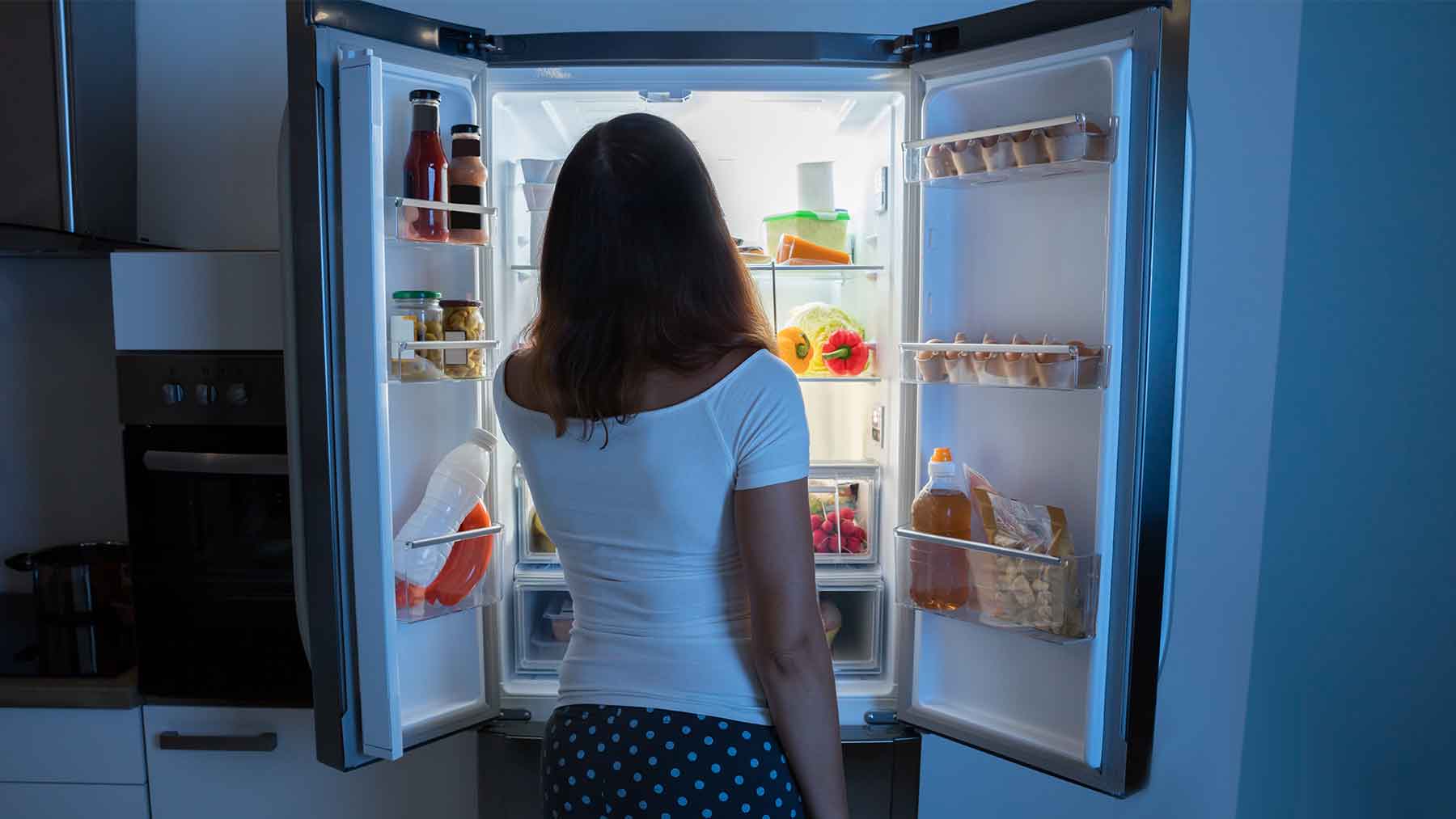Can nighttime eating sabotage weight loss efforts?

If you’re on a weight loss journey, you probably know the struggles of sticking with a diet in the evening.
You may have had a long day at work only to come home and take care of your family. By the time you have a moment to settle down, you’re beat, stressed and in need of comfort.
That’s when nighttime snacking tends to happen. Chips, ice cream and cookies are all highly processed, carbohydrate loaded, fatty foods that really hits those pleasure areas in the brain. If you feel stressed out or you’ve had a bad day, eating those foods makes you feel better short term, but in the long run, can lead to weight gain.
So how can you keep nighttime eating from sabotaging your weight loss? Here are a few tips:
1. Make sure you eat enough during the day.
The number one thing I see with many of my patients is they aren’t eating enough during the day. We’re so focused on getting up and out the door to work. We may be distracted all day long. We don’t have time to eat or we’re grabbing something and not eating enough. By the time we get home, even if we eat a good dinner, the psychological hunger hasn’t caught up with the physical hunger, so we eat well into the night.
Try to eat three balanced meals a day. If you aren’t hungry in the morning, eat something small like a banana with some peanut butter. It doesn’t have to be a big breakfast, just enough to get your energy levels off on the right foot. There are studies that show people who skip breakfast will make up for those calories later in the day, so that can compound the problem if you’re eating late at night.
2. Manage your stress.
There are so many stressors in our lives between work, kids and trying to get food on the table. Take a look at your lifestyle and how you deal with stress. Are there things in your life that you can declutter and simplify? Try five minutes of meditation each day or consider cognitive behavioral therapy. Learning to manage your stress can reduce the likeliness of eating for comfort.
3. Interrupt snacking routines.
Oftentimes nighttime snacking is habitual and associated with another activity. The most common example I give is eating while watching television. Sometimes it’s really hard to break the habit. You may have to stop watching television or change the location where you watch television. If that doesn’t work, see if you can eat something healthier so the snacking isn’t doing harm to your health.
4. Get a good night’s sleep.
Sleep is a big one. When I see patients who are doing a lot of eating late at night, that’s one of the first things I ask them. If you’re not getting enough sleep, it affects the cortisol levels which can affect the hunger hormones. Plus, if you’re up until midnight and you’ve eaten dinner around 6 o’clock, chances are pretty good that within that five hour window, you’re going to get hungry again. Go to bed at 10 if you can.
5. Limit alcohol use.
A lot of people will come home and have a beer or a glass of wine to de-stress. That alcohol will actually stimulate your appetite and lower your body’s ability to burn fat.
Be careful with alcohol intake. If you enjoy a nightly drink, try to cut it back to three times a week.
6. Find a distraction.
A craving is like a wave – it will peak and come back down. If you’re having a strong craving, try to distract yourself for 10 to 15 minutes. After it peaks, you may no longer feel like you need to eat.
7. Practice mindfulness.
Try to practice mindfulness at night. That’s where you stop and ask yourself – How am I feeling right now? Am I hungry? If I need to eat something, what am I hungry for? This is a process and you get better over time, usually in a few months.
8. Plan nighttime eating.
An all or nothing mentally can really backfire. If you really like to eat a few cookies or some chips before bed, plan it. Get a workout in so you can have that bowl of ice cream or eat a smaller bowl – it’s a balance of moderation and tradeoffs.
Find out what works for you
People need to play around with things and figure out what works for them. I know that the people who are the most successful at breaking bad habits or replacing them with more healthy things are always the ones who make it their own. It’s totally what works for you.
Liz Weinandy is a registered dietitian in the Department of Nutrition and Dietetics at The Ohio State University Wexner Medical Center.




